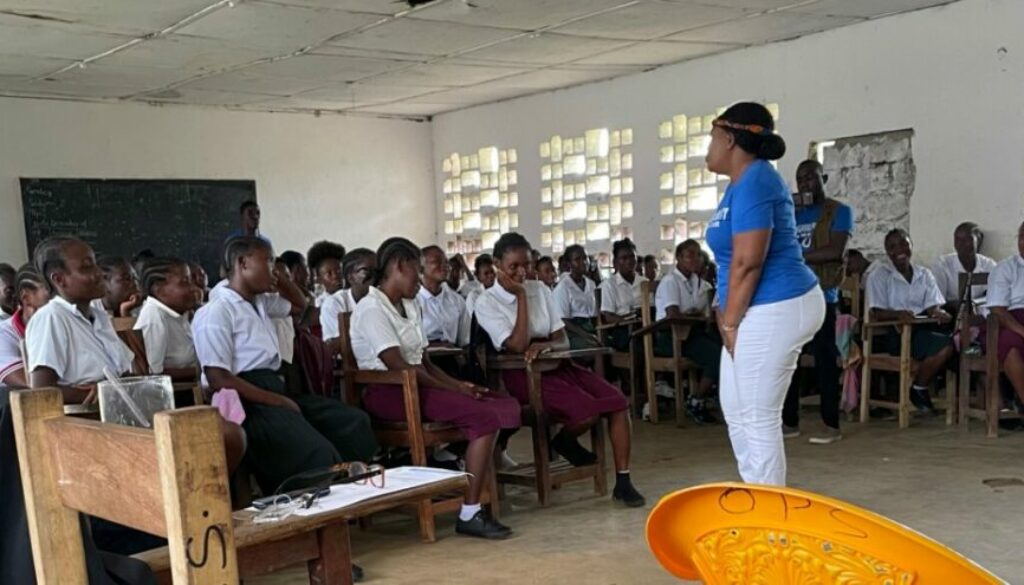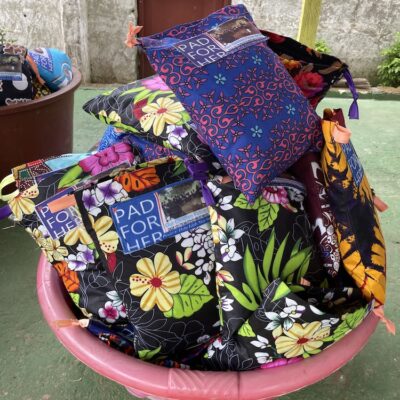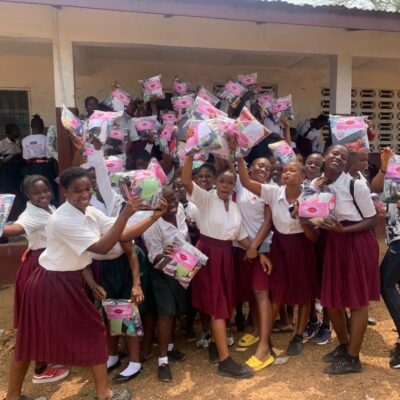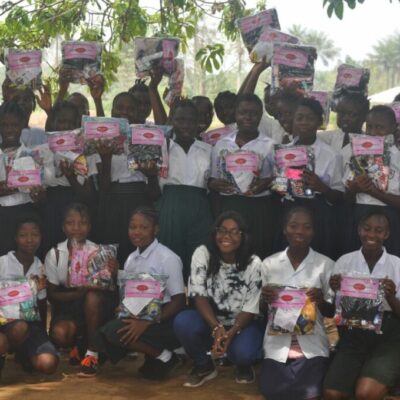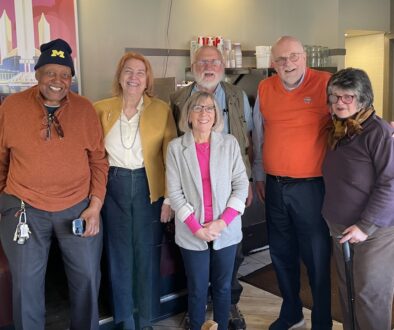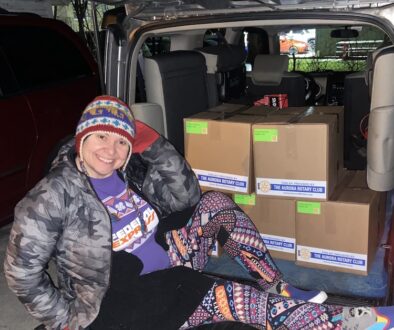Ending Period Poverty in Liberia
I’ll tell You My Story—Ending Period Poverty in Liberia
By Nancy Hopkins
Keep Girls in School
In Liberia, several generations have now had their education disrupted by twelve years of civil war, Ebola and COVID. Poverty is widespread. When one high school principal realized that girls were falling behind because they skipped school when they lacked sanitary pads, or went home with stained skirts, she did something about it. She turned the small nonprofit that she and her husband had started to feed neighborhood children, to a targeted mission.
International Neighbors Visits Liberia
In December 2022, Herbert and Nancy Hopkins, International Neighbors’ board members, met Josephine Barclay, Executive Director, Our Children Future (OCF) in her home workshop about an hour from downtown Monrovia. The following day, they accompanied members of the Monrovia chapter of the Alpha Kappa Alpha sorority to observe a distribution workshop at Owens Grove School, one of the eight schools the chapter has adopted to support girls’ education. The next week they drove to upland to hear Josephine make a call to action at a rural school of nursing.
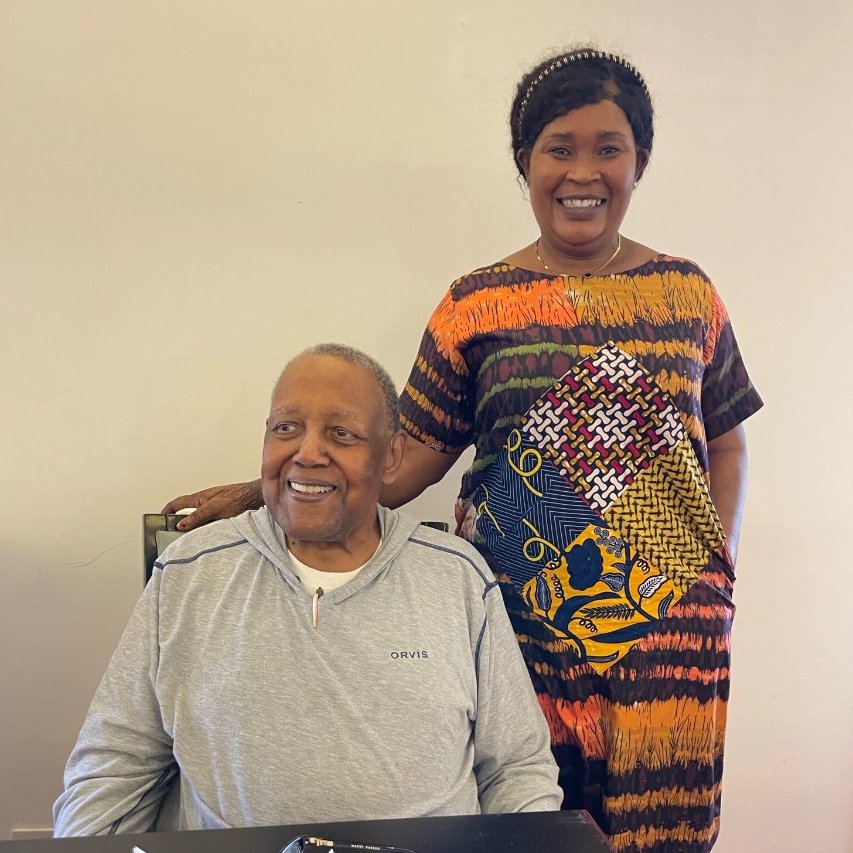

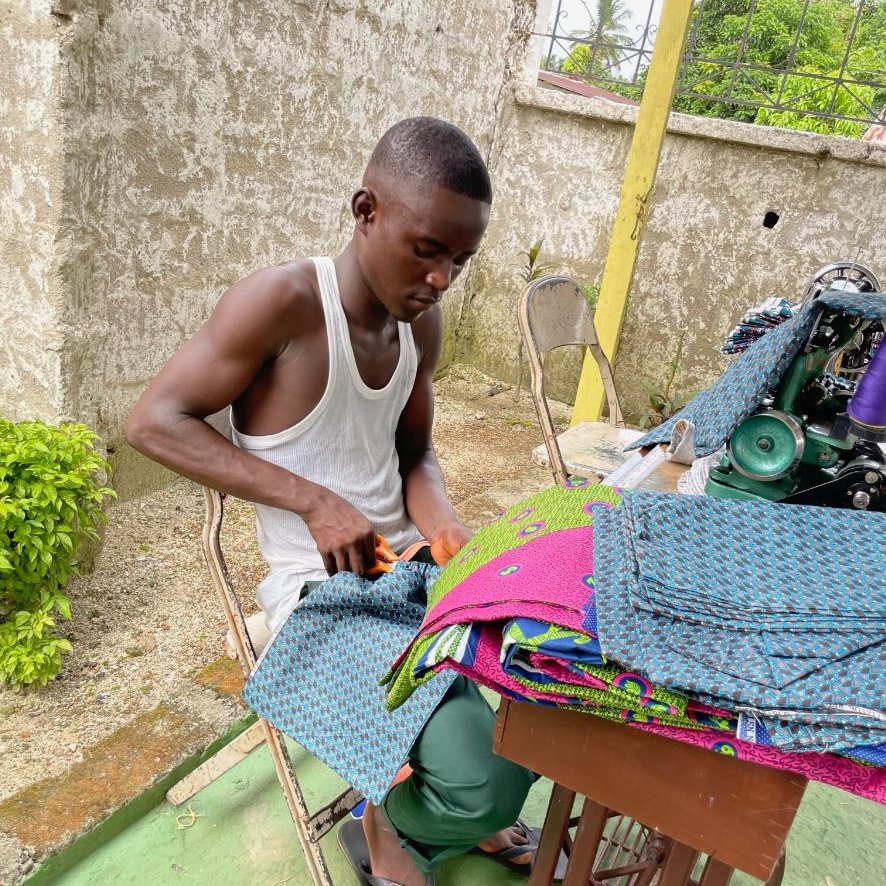
Josephine’s Story
“I’ll tell you my story, then you tell me yours.” This is how Josephine Barclay begins each talk to destigmatize discussing menstrual health. After introductions and a brief icebreaking song and laughter, Josephine stands before a group of 120 teen girls at Owens Grove School, several hours from her own. Although a high school principal, she is now informally garbed in white jeans and a blue OCF tee shirt. She begins in Liberian Pidgin English which the girls of varying tribal backgrounds all understand.
Her story
As a girl, living away from home and with no one to confide in, she was embarrassed and confused by her first period. She tore off strips of her long dress to staunch the flow of blood. Each month she cut off another strip of her dress. When it was too short, she cut strips of her bed sheet for substitute pads. Josephine told her employer that rats had eaten holes in the sheet, so she had to even it off. At one time, she even used the foam from her mattress as a pad. For years, she believed the infections and pelvic pain she experienced were the norm until her future husband insisted that she see a doctor.
The Workshop
The students are riveted by the story and a few bravely stand to recount their own difficult experiences. As the workshop progresses, two students teach back the procedure Josephine has demonstrated to wash blood thoroughly from their pads, sanitize them with a Dettol soak and air dry them. At the end of the demonstrations, each girl receives a Pad for Her kit. When the kits are handed out, girls laugh and cheer.
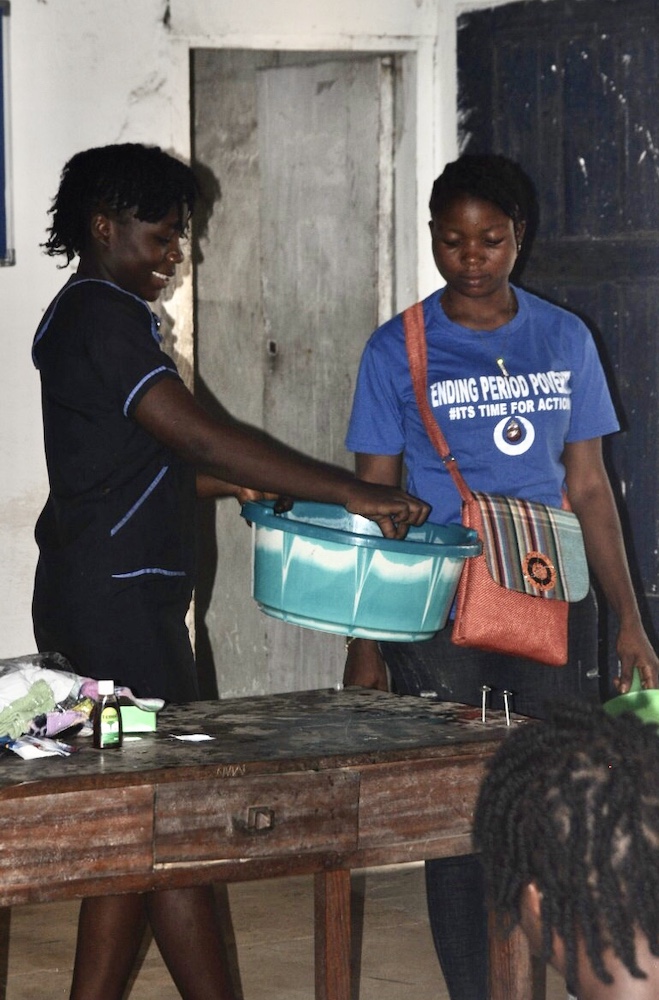
What’s in the Kit?
A full toiletry kit contains two pair of panties, a snap on pad holder, 10 fabric pads of varying thickness, a zip lock bag to carry a soiled pad, a washcloth, a packet of detergent powder, two small bottles of Dettol, a toothbrush, toothpaste, and roll-on deodorant. Even a needle and a little thread are included in case the essential snap works loose. These are all encased in zip-lock bags in a colorful cotton tote so the contents can be hung off the floor on a nail. The important extra is a small, lidded pail so each girl can wash her pads undisturbed by the family laundry.
A Meal and Questions
After the formalities end, there is lunch. For some, it will be the first meal of the day. The buffet is macaroni and stew and rice that Josephine’s crew has unpacked from the truck. Lunch time gives the students a chance to ask questions informally. Their questions (along with four or five student pregnancies at each school each year) are why Josephine believes her workshop is currently incomplete without a nurse or counselor to talk about reproductive health. I was told that sex education is part of the national curriculum, but little is taught.
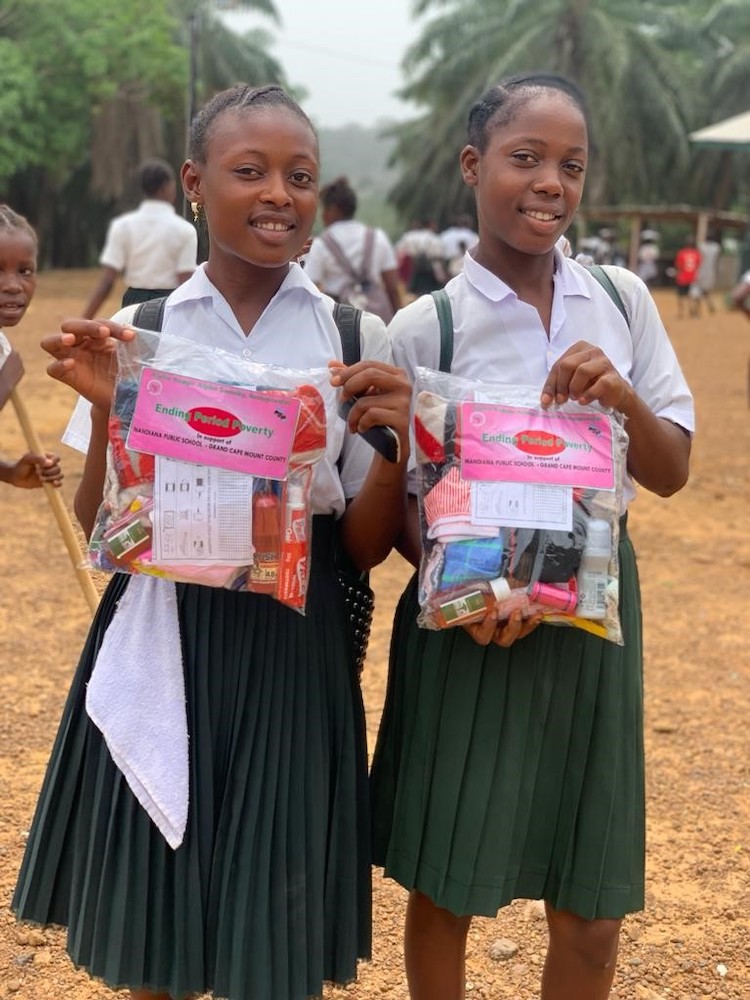
Everybody Wants One
A few days later, as Josephine pitches the idea of a project for teen rural mothers to a group of rural nursing students, she is surprised when the students tell her they would like the kits for themselves too. The cost of $8 to $10 US dollars per month for commercial sanitary pads is an unacceptable burden even for adults. Even when purchased, there is often no easy place to dispose of used pads. The concept of washable sanitary products is not strange in Liberia. Folded “old cloth” has been commonly used in place of sanitary napkins. Rags have the disadvantage of shifting to cause stained clothing or even falling on the ground. Sometimes they are not properly washed or fully dried, leading to medical problems.
Why focus on girls?
On the ride home Josephine reluctantly concludes that the nursing students’ needs must give way to girls not college women. Josephine points out that it’s the younger girls who need the information on how to keep themselves free of infection especially when puberty now often begins at ten years old. She’s also concerned that an unintended consequence of targeting one school per county causes some girls to switch from the school nearest their home to one that receives her kits. If that school is too far to walk to five days a week, it’s easier to drop out. Therefore, our starting goal is to provide the 360 girls with Pad for Her kits and menstrual health workshops in the three public high schools in the remote northern Grand Cape Mount County.
